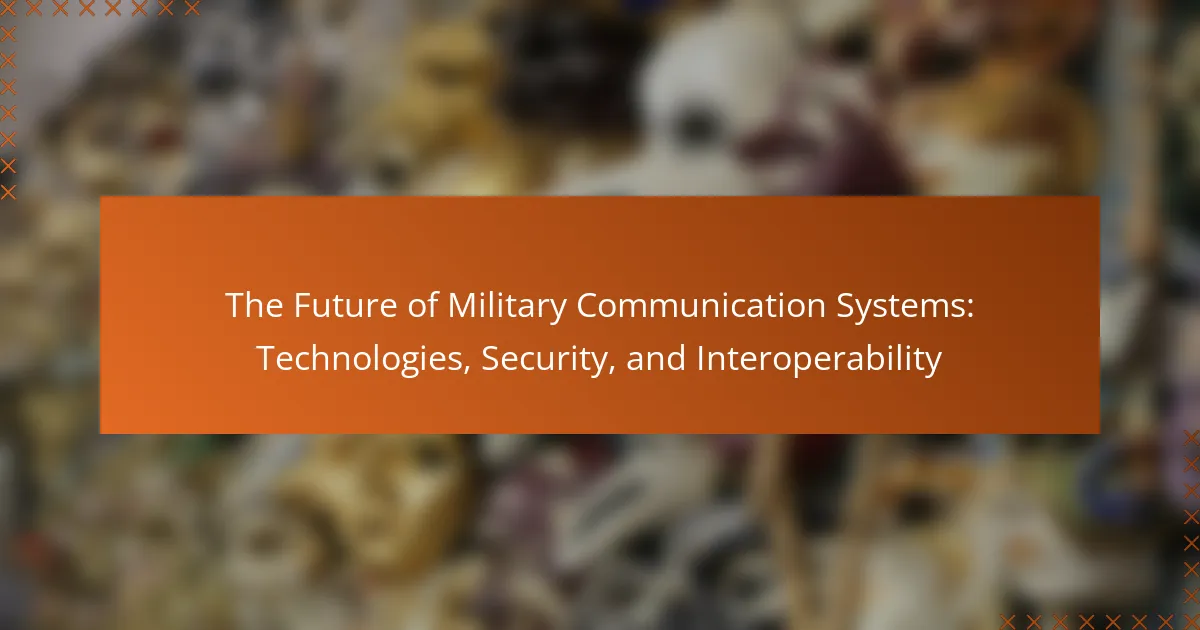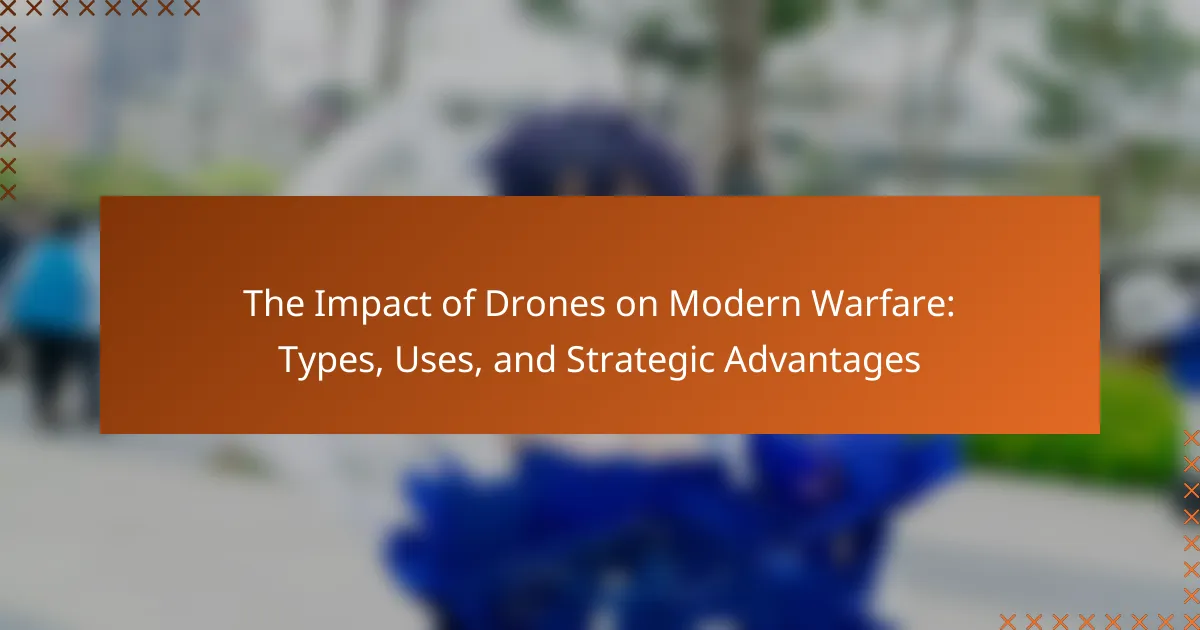Cybersecurity strategies for military operations are critical for safeguarding national security and operational integrity. Key components include threat assessment, which identifies potential cyber threats; network defense, aimed at securing communication and data systems; and incident response plans that outline procedures for effectively addressing cyber incidents. Best practices involve regular risk assessments, personnel training on cybersecurity […]

The Future of Military Communication Systems: Technologies, Security, and Interoperability
Military communication systems are composed of essential components such as hardware, software, and protocols that ensure reliable communication in operational environments. Key hardware includes radios, satellite systems, and networking equipment, while software involves communication applications and data management systems. The article explores advancements shaping the future of these systems, including satellite communication, artificial intelligence, and […]

Sustainability in Military Research: Eco-friendly Practices, Materials, and Technologies
Sustainability in military research focuses on implementing eco-friendly practices and technologies to minimize environmental impact. This includes the use of sustainable materials, such as bioplastics and recycled metals, as well as the integration of renewable energy sources like solar and wind power into military operations. Key strategies involve waste reduction, life-cycle assessments of military equipment, […]

Innovations in Battlefield Medicine: Techniques, Technologies, and Case Studies
Innovations in battlefield medicine encompass advanced trauma care technologies and techniques designed to improve survival rates for injured soldiers. Key advancements include the use of tourniquets for bleeding control, portable ultrasound devices for assessing internal injuries, telemedicine for remote consultations with specialists, and drones for rapid delivery of medical supplies. These innovations, such as Tactical […]

Enhancing Soldier Performance: Nutrition, Training, and Psychological Support
Enhancing soldier performance is influenced by three key factors: nutrition, training, and psychological support. Proper nutrition is essential for providing the energy and nutrients necessary for optimal physical endurance and cognitive function. Training focuses on improving physical fitness, combat skills, and adaptability to various environments, while psychological support fosters mental resilience, reduces stress, and enhances […]

The Role of Artificial Intelligence in Army Science: Benefits, Limitations, and Ethical Considerations
Artificial Intelligence (AI) is increasingly integrated into Army Science, significantly enhancing decision-making and operational efficiency. AI systems process large datasets to generate actionable insights, improve predictive maintenance for military equipment, and support autonomous systems like drones and ground vehicles. Furthermore, AI contributes to realistic training simulations for soldiers and bolsters cybersecurity by identifying threats in […]

The Impact of Drones on Modern Warfare: Types, Uses, and Strategic Advantages
Drones are unmanned aerial vehicles that have significantly transformed modern warfare through enhanced surveillance, precision strikes, and reduced risk to personnel. This article examines the various types of drones, their uses in military operations, and the strategic advantages they provide, including real-time intelligence gathering and the ability to conduct missions in hostile environments without endangering […]

Advancements in Military Robotics: Applications, Challenges, and Future Prospects
Military robotics represent a significant advancement in defense technology, characterized by enhanced autonomy, improved sensors, and advanced artificial intelligence. These systems are capable of operating with minimal human intervention, facilitating surveillance and reconnaissance in hazardous environments. Key developments include high-resolution cameras and LIDAR for superior data collection and situational awareness, as well as swarm robotics […]

Exploring Autonomous Vehicles in Military Operations: Benefits, Risks, and Regulations
Autonomous vehicles are self-operating machines capable of navigating and performing tasks without human intervention, particularly in military operations. These vehicles, including drones and ground-based systems, are utilized for reconnaissance, logistics, and combat support, enhancing operational efficiency while minimizing risks to human soldiers. The U.S. Department of Defense has made significant investments in these technologies, recognizing […]

The Evolution of Military Training Simulations: Technologies, Benefits, and Future Trends
Military training simulations are advanced technologies designed to replicate combat scenarios for the training of military personnel. These simulations utilize tools like virtual reality (VR), augmented reality (AR), and artificial intelligence (AI) to create realistic environments that enhance skills such as teamwork, communication, and strategic planning. The article explores the evolution of these simulations, highlighting […]
